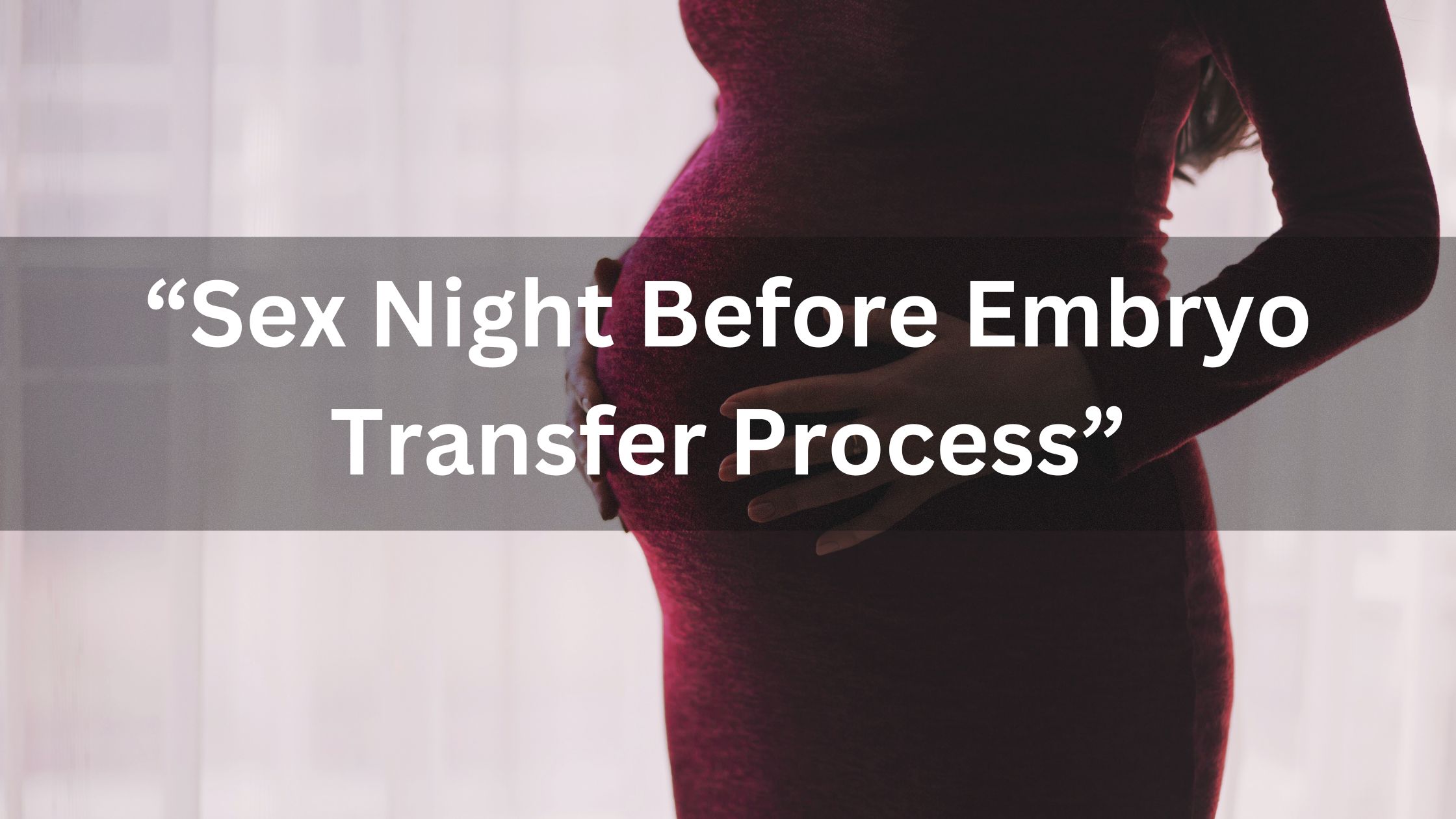It is generally recommended that couples resume sexual intercourse a week or two after embryo transfer, but consultation with a fertility specialist is also recommended.
At IVF Network, we recognize that people struggling with infertility and IVF treatment will have many questions. Through our dedicated expert channel, website, and blog posts, we provide a wealth of information to answer many of these questions and help you make informed choices on your personal fertility journey.
What is Embryo Transfer?
Embryo transfer is a procedure by which a fertilized egg is placed in a woman’s uterus. This is the last and main step of the in vitro fertilization (IVF) process.
Embryo transfer takes place 2 to 5 days after ovulation, which is when the eggs are removed from the ovaries to be fertilized outside the body. A fertility doctor uses ultrasound to guide the transfer because the placement of the embryos inside the uterus must be precise.
Embryo transfer is a quick and simple process, but it is one of the most important steps in the artificial insemination process. It is not harmful and painful, but may cause a little bit uncomfortable. Some people describe feelings similar to those of a typical Pay test.
How to Understand the Process of Embryo Transfer?
Embryo transfer is a simple procedure and rarely requires anesthesia or painkillers. A long, thin catheter containing an agreed number of embryos and a small amount of fluid is inserted through the cervix into the uterus, where the embryos or fetuses are released.
Here is some information about embryo transfer.
- Degrees The steps involved in in vitro fertilization (IVF) include ovulation induction, egg retrieval, in vitro fertilization, and embryo transfer.
- Procedure During the embryo transfer process, the doctor uses ultrasound to insert a catheter through the cervix to the uterus. The embryos are then placed into the uterus via a tube.
- Pain Embryo transfer is not painful but may cause slight discomfort. Most people describe the sensations they feel during this procedure as being similar to the sensations they feel during a regular Pap test.
- Signs of success Some signs that the embryo transfer may be successful include bleeding, cramping, breast tenderness, fatigue, nausea, swelling, discharge, and increased urination.
- Blood test: Approximately 9 to 11 days after the transfer, a blood test can be used to determine whether the mother is pregnant or not. If the embryo implants, HCG is detected in the mother’s blood.
- Advice Here are some tips for a successful embryo transfer:
- Ask the most experienced doctor.
- Go on a fake trip.
- Take folic acid.
- If you are over 40, consider transferring two embryos.
- Do not fall asleep after embryo transfer.
Is Having Sex Before Embryo Transfer Affecting Fertility Treatment?
Fertility treatment is a journey that can be difficult and confusing for many couples. One of the most important steps in this process is the transfer of the embryo, including the fertilized egg, into the woman’s uterus.
Many couples wonder if having sex before or after embryo transfer can affect the success of the treatment. This article will examine this issue in-depth and provide accurate and up-to-date information.
What is the Impact of Sexual Activity on the Embryo Transfer Process?
According to some research, sexual activity before embryo transfer can increase prostaglandin production, which can lead to uterine contractions. However, other studies suggest that sexual intercourse before embryo transfer can improve clinical pregnancy and implantation rates.
In general, couples are advised to avoid sexual intercourse before and after embryo transfer. However, some patients prefer to have sexual intercourse the day before the embryo transfer.
Factors that affect the success rate of Embryo Transfer include:
- Age
- Quality of eggs, sperm, and embryo
- History of previous pregnancy
- Controlled ovarian stimulation protocol
- Reception of the uterus or endometrium
- Embryo transfer
- Lifestyle factors
To increase the chances of a successful embryo transfer, it is important to take medications such as estrogen and progesterone that promote pregnancy.
After IVF, it is important to avoid extreme heat. This includes avoiding hot baths, spas, and hot tubs. Bathing is good because it does not increase body temperature. It is also important to avoid jogging or strenuous exercise, as this could increase your body temperature.
Some Factors Affecting the Process of Embryo Transfer Treatment Success
The success of embryo transfer treatment depends on several factors, including a woman’s age, medical history, and overall reproductive health.
Here are some important factors that can affect the success of fertility treatment:
- Age:
Age is one of the most important factors affecting the success rate of fertility treatments. As a woman ages, the quality of her eggs decreases, making it more difficult to get pregnant. Women over 35 may have difficulty conceiving, even with the help of fertility treatments.
- Reproductive health:
A woman’s reproductive health is another important factor in the success of fertility treatments. Problems like polycystic ovary syndrome (PCOS), endometriosis, and uterine fibroids can affect fertility. These conditions can make it more difficult for a fertilized egg to implant in the uterus or increase the risk of miscarriage.
- Seed quality:
The quality of the male partner’s sperm is also important for the success rate of fertility treatment. Low sperm count or low sperm motility can make it difficult for sperm to reach and fertilize the egg.
- Lifestyle factors:
Many factors can affect the success of fertility treatment, including smoking, alcohol consumption, and weight. Smoking can reduce fertility by damaging eggs and sperm. Alcohol consumption can also affect fertility and increase the risk of miscarriage. Being overweight or obese can affect hormone levels and affect fertility.
- Quality of the embryo:
- Embryo quality is also essential to the success of fertility treatments.
High-quality embryos have a better chance of implanting and developing a healthy pregnancy. In some cases, additional testing may be necessary to assess the quality of the embryos before transfer.
- endometrium:
- The thickness and quality of the uterine lining are important for the success of fertility treatments. Thin or insufficient uterine lining can make it difficult for an embryo to implant and develop a healthy pregnancy.
- Full health:
A woman’s health can affect the success rate of fertility treatments. Diabetes, thyroid disease, and other chronic illnesses can affect fertility. It is important to work closely with your gynecologist to manage any underlying health issues before and during fertility treatment.
Scientific Perspective And Expert Opinions on Embryo Transfer Process
The scientific view on the embryo transfer (ET) procedure indicates that it is essential for the success of IVF. Here are some expert opinions on the embryo transfer procedure:
- The process should be guided by ultrasound.
- It is best to use a flexible catheter.
- The fetus should be released approximately 1 to 2 cm from the bottom of the uterus.
- The individual provider who performs ET can affect pregnancy rates.
- According to one study, there was no statistical difference between using fresh and frozen embryos.
- High-quality embryos account for 79 percent of live births, good-quality embryos for 64 percent, and low-quality embryos for 28 percent.
- The transition to the blastocyst stage results in a higher number of live births per cycle and occurs with fewer embryos.
- Fertilized embryos progress to the cleavage stage (3 days after fertilization) or the blastocyst stage (5 days after fertilization).
- Embryo transfer is usually carried out two to five days after egg retrieval.
Fertility specialists and experts in the field have different opinions on the effects of sexual activity before embryo transfer. Some recommend that couples abstain from sexual activity for a few days before and after to avoid potential risks. Others believe that sexual activity does not affect treatment results.
However, every fertility treatment situation is unique and there is no one-size-fits-all approach. It is important to work closely with your fertility specialist to develop a personalized treatment plan that takes into account your specific needs and situation.
Conclusion
In conclusion, evidence is lacking on whether sex before embryo transfer affects fertility treatment outcomes. If you choose to engage in sexual activity before or after transitioning, you should follow the recommended timing guidelines and consult your doctor for individual advice.
Remember that fertility treatment is a journey and it is important to have realistic expectations and stay positive throughout the process.


